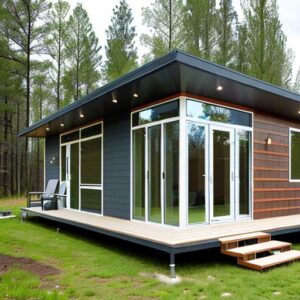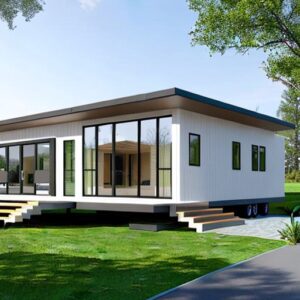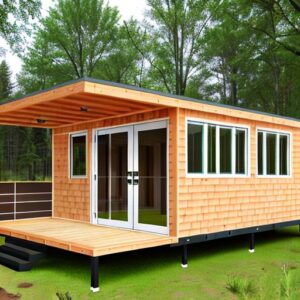Cost-effectiveness stands out as a substantial factor that renders modular homes an appealing investment opportunity. In contrast to stick-built residences, modular homes generally exhibit a higher degree of affordability. The controlled factory environment facilitates efficient production and diminished labor costs. Moreover, manufacturers often maintain well-established supplier relationships, enabling them to procure materials in bulk at reduced prices. These cost savings are subsequently transferred to the prospective homeowner, resulting in a more financially attainable price range for a comparable living space. Additionally, the abbreviated construction timeline of modular homes can yield savings in financing expenses since homeowners spend less time making mortgage payments during the construction phase.
Efficiency represents another advantage inherent to modular homes. The factory-controlled construction process permits precise engineering and meticulous attention to detail. Proficient workers adhere to standardized procedures, ensuring consistency and minimizing errors. The utilization of advanced technologies and machinery further enhances efficiency. This streamlined approach consequently leads to expedited construction times, thereby reducing the overall project duration. Notably, modular homes boast commendable energy efficiency. These residences frequently incorporate high-quality insulation materials, energy-efficient windows, and appliances, culminating in decreased energy consumption and diminished utility bills in the long run.
Quality constitutes a critical consideration when embarking upon a home purchase, and modular homes excel in this realm as well. The factory environment affords superior quality control in comparison to on-site construction. Skillful workers adhere to stringent guidelines and conduct regular inspections at various stages of the construction process. This rigorous quality assurance ensures that modular homes meet or surpass industry standards pertaining to structural integrity, electrical and plumbing systems, insulation, and overall workmanship. Additionally, the utilization of precise machinery and standardized construction techniques minimizes the potential for human error and enhances the overall quality of the final product.
Customization options abound in the realm of modular homes. Contrary to widespread misconceptions, modular homes can be extensively tailored to individual preferences. Manufacturers offer a wide array of pre-designed floor plans and design options that can be customized to align with personal inclinations. Prospective homeowners can actively collaborate with architects and designers to effect modifications and select personalized features, including finishes, fixtures, and appliances. This high level of customization affords homeowners the opportunity to fashion a living space that authentically reflects their distinctive style and fulfills their specific needs.
Sustainability emerges as an increasingly pivotal consideration for prospective homeowners, and modular homes present several eco-friendly features. The controlled factory environment minimizes waste through the optimization of material usage. The construction process frequently integrates recycled and sustainable materials, thereby mitigating the environmental impact. Furthermore, the energy-efficient design and superior insulation of modular homes contribute to reduced energy consumption and a diminished carbon footprint. By electing to invest in a modular home, buyers can actively contribute to sustainable living and minimize their ecological footprint.
Furthermore, modular homes are meticulously constructed to meet or surpass local building codes and regulations. These residences undergo rigorous inspections and certifications to ensure full compliance with safety standards. This imbues homeowners with a sense of security, as they can confidently trust that their investment is safeguarded and that their home is fortified to withstand the tests of time.




